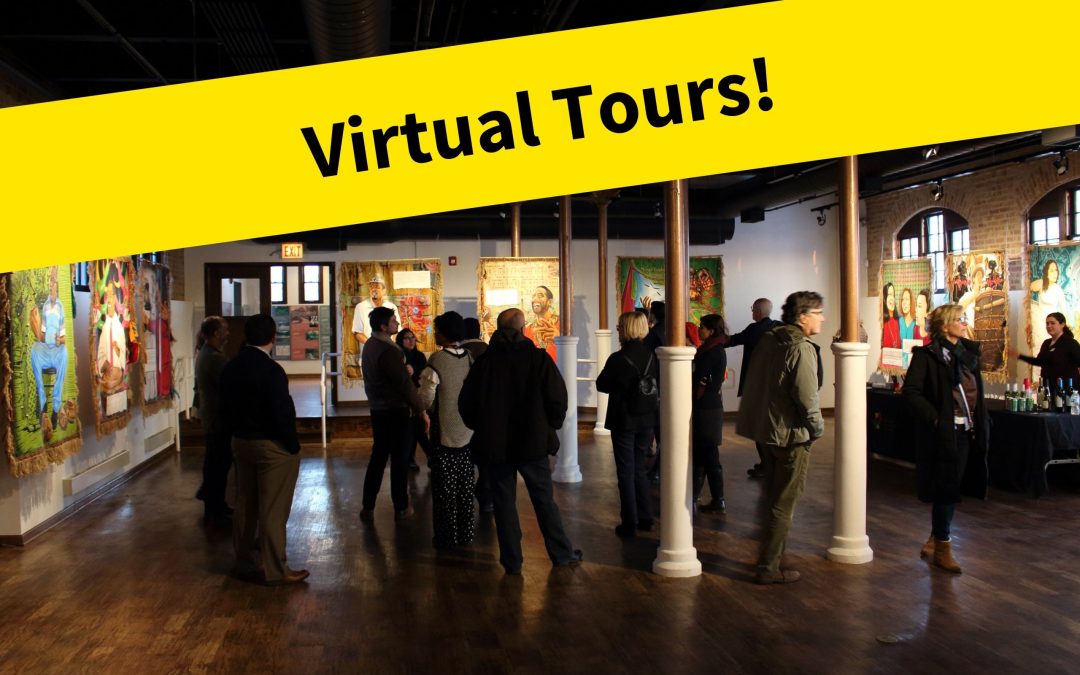Since we’re all spending more time at home, I hope the recipes and stories we’re sharing through Taste From Home bring us closer to our families and friends. I’ve shared a recipe for arroz con gandules, Puerto Rican rice, and pigeon peas. As I wrote this, I remembered my grandfather grew his own gandules in Florida. It’s wonderful how food can bring up memories. Don’t you love the moments when you are eating a dish and with a first bite a flood of memories come back? I had this moment at Nellie’s Restaurant in Humboldt Park not long ago. I ate a delicious pernil, roast pork, and I was brought to tears because I immediately thought about my dad who passed away just last year. The moment was painful but wonderful at the same time.
My dad was such a wonderful cook. I learned a lot of cooking from my family but I could never cook like my dad. No one can. However, I made it a point to make more Puerto Rican food at home in honor of my dad so I don’t lose the delicious recipes.
I grew up in New York City in the Bronx. Puerto Rican bodegas and restaurants were on every corner. Moving to Chicago’s made it a bit more challenging to find Puerto Rican food in neighborhoods outside of Humboldt Park. I make due though. Over the past 7 years, I’ve enjoyed exploring my Puerto Rican culture in the kitchen. I’m grateful that the move required me to do so.
The Goya boycott makes finding ingredients for my family’s recipes difficult. Consumer activism, choosing what we purchase in support of more ethical business practices, does make an impact when we live in a world where capitalism reigns supreme. However, I also want to recognize the increase in “cancel” culture and it’s toxicity. It is very easy to “cancel” a brand, company, celebrity, or politician. It’s important for us to also have more courageous conversations and think deeper about how our decisions affect everyone.
Goya has over 4000 employees throughout the US, Puerto Rico, Dominican Republic, and Spain. When we “cancel” a company, we’re also taking a risk in people losing their jobs. Let’s not forget about those people and think collectively about how we can support those who may suffer from job loss.
I’ll definitely miss aspects of the Goya brand. I’ve come to the realization boycotting Goya makes me miss the visual representation of my culture in small ways. In New York, I walked into any grocery store or bodega and Goya was everywhere! In Chicago, it is much harder to find when you walk into Mariano’s, Jewel, and don’t get me started on Whole Foods. My local grocery store, Edgewater Produce, reminds me of New York City’s bodegas. Here, I can find all the brands and options I need for my family dishes. I know other cultures can relate to this as well. We have Asian, African, and Indian all over Chicago. Most sell products that can’t be found at “mainstream” grocery stores. When I walk into a place that has Goya products, I feel seen. I feel like I belong. I feel like I’m at home.
Now, I am not saying I will continue to buy Goya products. I’ll do my work to find the ingredients I need to make my family recipes. It won’t be an easy task though. Edgewater Produce is small and options are still limited. It’s important to remember that choice is a privilege. Not everyone will have the option to find other ingredients or explore other grocery stores. When we “cancel” and move on, let’s not forget about the people who don’t have that same privilege to do so.
Taste From Home has given me, and I hope others, an opportunity to talk to their families about recipes that open conversations to many other topics. It also provided me with the opportunity to explore new cultural recipes. I’ve never cooked lentils at home until I made the delicious Turkish Lentil Soup recipe shared by one of our Board Members, Suzanne Franklin. We want Taste From Home to help facilitate conversations about race, culture, and identity. With all the challenges we’re facing today, food may be a simplified way to understand other cultures. It’s definitely not the only way, but food and family recipes are things we can all relate to. When the world is so complicated, it’s refreshing to remind ourselves about the simple things, like my family’s delicious arroz con gandules.





